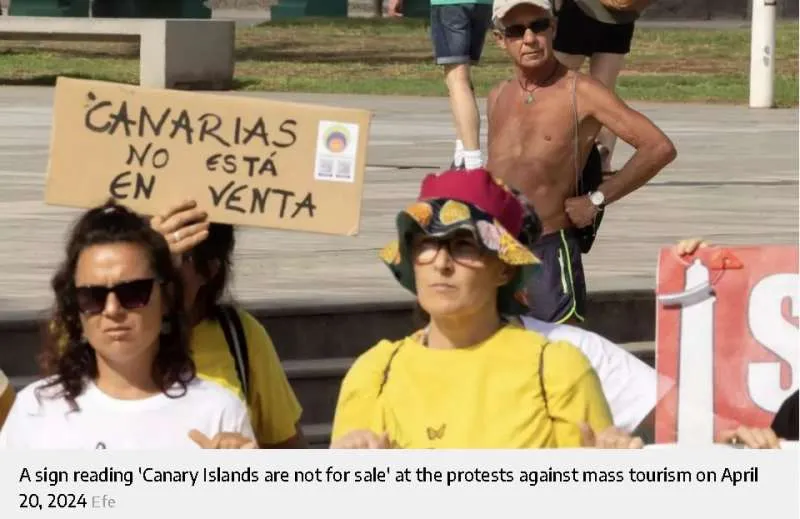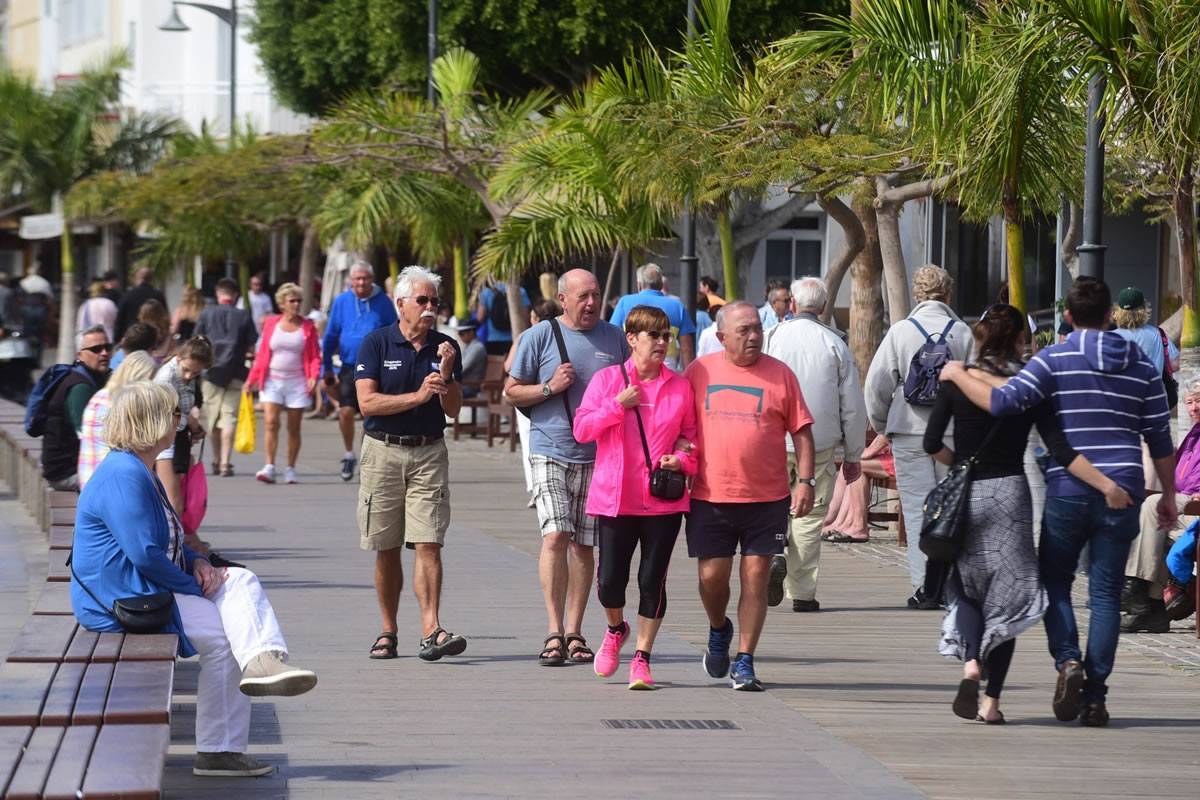Growing support for a tourist tax in the Canary Islands amid mass tourism protests
- 24-02-2025
- National
- Canarian Weekly
- Photo Credit: Stock image
Public sentiment towards a tourist tax in the Canary Islands has shifted significantly, with 75.2% of visitors now willing to pay a fee for their stay. This figure, recorded in the final quarter of 2024, marks a steady increase throughout the year.
The data suggests that introducing such a levy would not deter tourists from visiting the islands, a concern previously raised by opponents of the measure.
According to the Tourist Spending Survey by the Canary Islands Institute of Statistics (ISTAC), three out of four tourists would accept a tourist tax, an initiative increasingly demanded by local residents. Calls for the tax intensified following mass protests against overtourism on 20th April 2024, during which thousands of Canarians rallied under the slogan: "We want to be hosts, not slaves."
In the second quarter of 2024, 73.8% of visitors expressed their willingness to pay a tax, rising to 75.2% by the fourth quarter. Similarly, the percentage of tourists who have not ruled out destinations with a tourism levy increased from 76.95% to 78.91%. Additionally, the number of travellers accustomed to paying such fees in other destinations grew from 44.84% to 46.44% within the same period.
When asked how much they would be willing to contribute, responses varied:
- 30.8% would pay up to €1 per day
- 25.9% would pay up to €2 per day
- 14.6% would pay up to €3 per day
- 9.2% would pay more than €3 per day
- 0.9% were unsure or did not respond
These figures have been gathered since mid-2024, following the surge in anti-tourism protests. Previously, ISTAC monitored tourist perceptions under the "Sustainable Destination" category, which evaluated the impact of tourism on local life. However, this dataset was discontinued in early 2024, raising concerns among experts who argue that more data on sustainability and tourism impact is necessary.
Perceived Decline in Quality of Life and Local Tolerance
Findings from the now-discontinued Sustainable Destination survey revealed that tourists themselves have noticed a decline in the quality of life of residents in the Canary Islands. Between 2022 and 2024, visitor ratings on the quality of life they observed in the region dropped from 8.06 to 7.95.
Additionally, tourists perceived a decrease in local tolerance towards tourism, with scores falling from 8.54 to 8.42. Other issues identified by visitors include:
- Declining cleanliness levels
- Worsening air quality
- Inadequate recycling efforts in hotels and restaurants
- Overcrowding in tourist hotspots
- Limited availability of local products in shops and restaurants
The introduction of a tourist tax could address some of these challenges by funding environmental conservation projects and sustainable tourism initiatives, similar to the model used in the Balearic Islands since 2016. Other cities with a high tourist influx, such as Paris and Rome, also apply such taxes without experiencing a decrease in visitor numbers.
Projected Financial Impact: €250 Million Income Annually
The Nueva Canarias (NC) party estimates that a Canary Islands tourist tax could generate €250 million per year. The party argues that the revenue should be earmarked for sustainable tourism and environmental protection projects.
"The tax would have a specific purpose, with funds directed towards improving the tourism sector and preserving the region’s natural heritage," an NC spokesperson stated.
However, the Canary Islands Government, led by Coalición Canaria (CC) and the Partido Popular (PP), remains opposed to the measure. In December 2024, government spokesperson Alfonso Cabello (CC) dismissed the idea, citing the difficulty of distinguishing between tourists and local residents. Although CC briefly considered the tax before last year’s protests, it has since aligned with the PP’s stance against the levy.

Local Tax Introduced in Mogán Sparks Controversy
While the regional government remains resistant, the municipality of Mogán (Gran Canaria) has independently introduced a small local tourist tax. Under a new ordinance, visitors staying in hotels, apart-hotels, or holiday rentals within the town must pay a fee of €0.15 per day. The funds will be used to support underfunded public services.
This local initiative has sparked political division. PSOE and Nueva Canarias oppose the method rather than the concept, as both parties have supported a regional-level tax in Parliament. However, major hotel associations (FEHT and CEHAT), along with several tourism businesses, have demanded the repeal of Mogán’s new tax.
With rising public support and increasing international precedents, the debate over a Canary Islands tourist tax is unlikely to fade. Whether the regional government eventually shifts its stance remains to be seen, but local opposition to mass tourism continues to reshape the political and economic landscape of the archipelago.
Other articles that may interest you...
Trending
Most Read Articles
Featured Videos
TributoFest: Michael Buble promo 14.02.2026
- 30-01-2026
TEAs 2025 Highlights
- 17-11-2025



























































